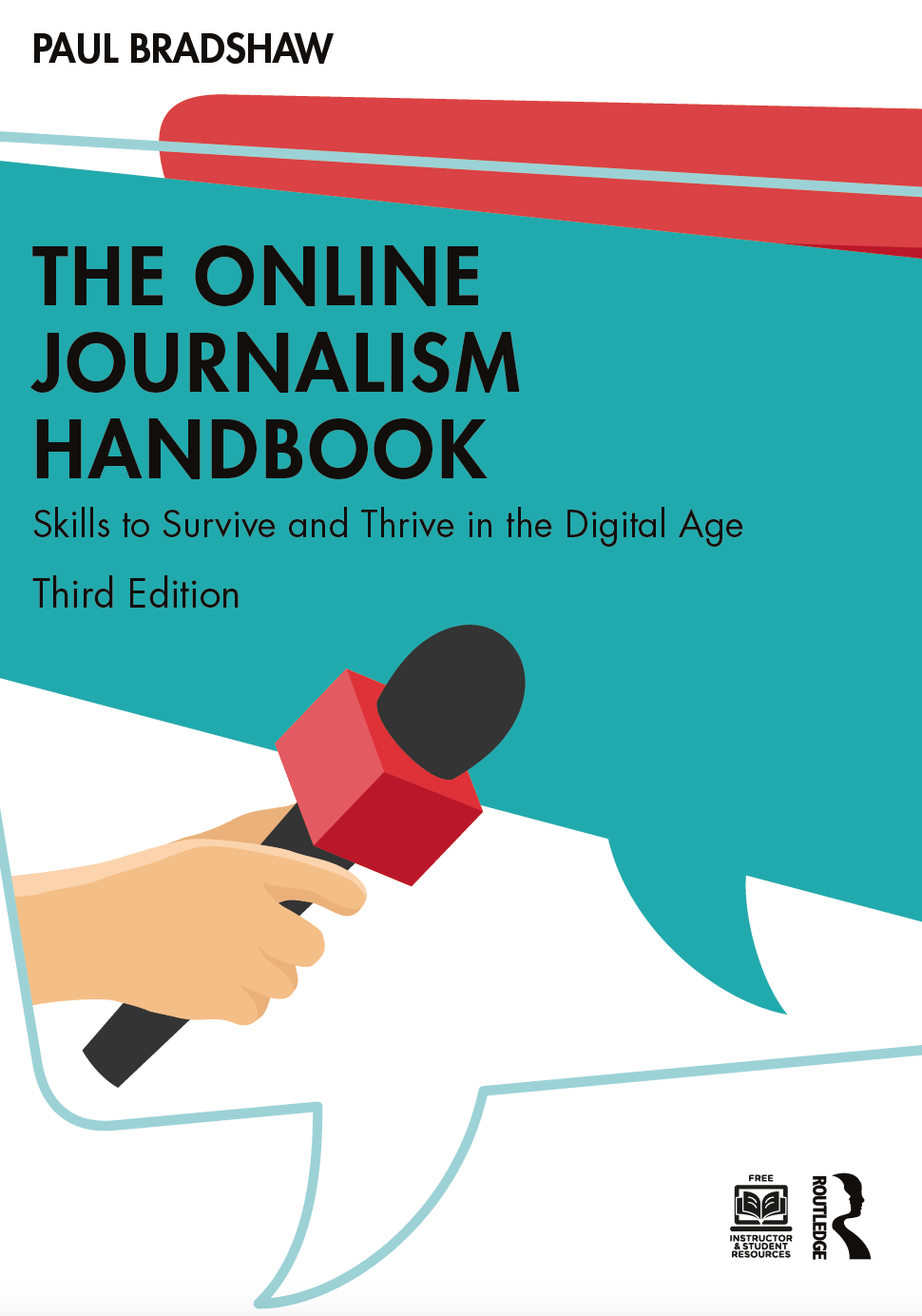A new, third, edition of the Online Journalism Handbook is now out.
A comprehensive update to the 2017 second edition, it sees the addition of a new chapter on writing for email and chat.
There are new sections on formats from scrollytelling and charticles to threads, vertical Stories, social audio and audiograms, plus advice on how to use gifs, memes and emoji professionally as a journalist.
One notable development of the last few years reflected in the book is the improvement in accessibility provision — which is covered alongside techniques for better inclusivity and diversity in journalism practice.
Developments around harassment and online abuse, misinformation, news avoidance, and trust are all covered — and, of course, the impact of the pandemic on journalistic practices, including remote interviewing tips.
I’ll be publishing extracts and the material I had to leave out (it’s 20,000 words longer than the last edition) in the coming months.





